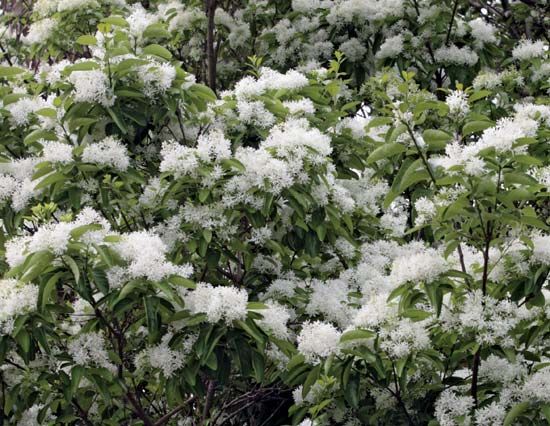tung tree
- Also called:
- Tung Oil Tree
- Related Topics:
- tung oil
tung tree, (Aleurites fordii), small Asian tree of the spurge family (Euphorbiaceae), commercially valuable for tung oil (q.v.), which is extracted from its nutlike seeds. In the Orient tung oil was traditionally used for lighting, but it also has important modern industrial uses.
The tung tree grows to a height of 7.5 m (25 feet). It has large leaves, lobed or unlobed, attractive white flowers with reddish centres, and apple-sized globular fruit. The tung and its relatives, the candlenut tree (Aleurites moluccana), mu tree (A. montana), Japan wood oil tree (A. cordata), and lumbang tree (A. trisperma), are decorative and are planted as shade trees or as sources of tung oil in the subtropical and tropical areas of many countries, including the American Deep South, where they grow rapidly under favourable soil conditions.















